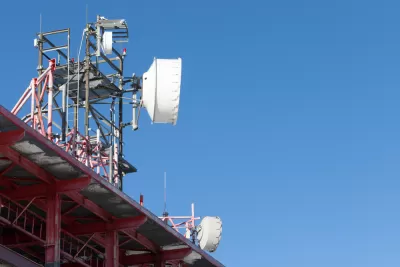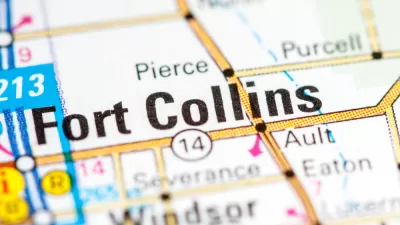A Harvard study found that, in 27 communities and cities with both private and city owned internet, the municipal broadband was almost always cheaper.

In the wake of the FCC's repeal of net neutrality and shortly after news that Comcast, Cox, and other broadband providers will be raising rates around the country, a new study shows that cities are providing cheaper broadband than their private counterparts are.
The Harvard study, which looked at 27 communities, is likely to make for-profit broadband providers squirm. The results were definitive. "In nearly every case, the community-own broadband was cheaper -- up to 50% cheaper -- and had more consistent, predictable pricing," Clive thompson reports for Boing Boing. Predictable pricing means that, instead of offering introductory rates and then raising the prices after customers are locked into a service, community broadband providers generally offered consistent pricing.
Suggesting more cities might be wise to follow the example of Fort Collins, Colorado and create their own service.
FULL STORY: Study finds municipal broadband is up to 50% cheaper than telcos

Study: Maui’s Plan to Convert Vacation Rentals to Long-Term Housing Could Cause Nearly $1 Billion Economic Loss
The plan would reduce visitor accommodation by 25,% resulting in 1,900 jobs lost.

North Texas Transit Leaders Tout Benefits of TOD for Growing Region
At a summit focused on transit-oriented development, policymakers discussed how North Texas’ expanded light rail system can serve as a tool for economic growth.

Why Should We Subsidize Public Transportation?
Many public transit agencies face financial stress due to rising costs, declining fare revenue, and declining subsidies. Transit advocates must provide a strong business case for increasing public transit funding.

How to Make US Trains Faster
Changes to boarding platforms and a switch to electric trains could improve U.S. passenger rail service without the added cost of high-speed rail.

Columbia’s Revitalized ‘Loop’ Is a Hub for Local Entrepreneurs
A focus on small businesses is helping a commercial corridor in Columbia, Missouri thrive.

Invasive Insect Threatens Minnesota’s Ash Forests
The Emerald Ash Borer is a rapidly spreading invasive pest threatening Minnesota’s ash trees, and homeowners are encouraged to plant diverse replacement species, avoid moving ash firewood, and monitor for signs of infestation.
Urban Design for Planners 1: Software Tools
This six-course series explores essential urban design concepts using open source software and equips planners with the tools they need to participate fully in the urban design process.
Planning for Universal Design
Learn the tools for implementing Universal Design in planning regulations.
City of Santa Clarita
Ascent Environmental
Institute for Housing and Urban Development Studies (IHS)
City of Grandview
Harvard GSD Executive Education
Toledo-Lucas County Plan Commissions
Salt Lake City
NYU Wagner Graduate School of Public Service





























